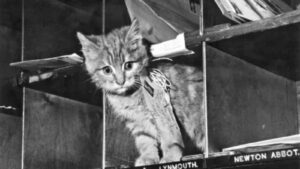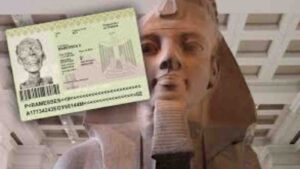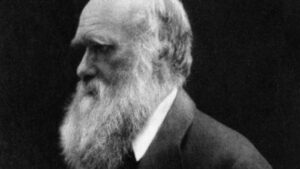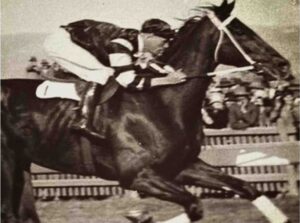Top 25 amazing facts you won’t believe are actually true.
Summary
The world is a strange, surprising place, in ways large and small, serious and trivial. Many times, things you may have assumed to be true (for years!) might be totally false. Other times, what you long believed to be a […]

The world is a strange, surprising place, in ways large and small, serious and trivial. Many times, things you may have assumed to be true (for years!) might be totally false. Other times, what you long believed to be a myth is actually fact. From an earthquake-proof cathedral that’s made almost entirely of cardboard to an ancient Egyptian mummy with a modern-day passport, this list of crazy-but-true facts is sure to challenge your preconceived notions about the world.
The verb “unfriend” is 350 years older than Facebook:
Top 25 amazing facts you won’t believe are actually true. While most of us would interpret the word “unfriend” as a verb meant to indicate that someone has severed an internet relationship, the word itself was first used in the 1200s to describe someone who was no longer a friend. By the 17th century, however, “unfriend” had become a verb that meant essentially the same thing it does today, minus the internet. In 1659, Thomas Fuller wrote: “I hope, sir, that we are not mutually unfriended by this difference which has happened between us.”
The tea bag was invented by accident:
Though many of us associate all things tea with the British, the portable tea bag was a purely American invention. Before 1908, tea only came in loose leaf form and needed to be steeped in a metal diffuser to brew. However, when a New York tea merchant sent out samples of his tea in small silk bags, some of his customers assumed that the bag could take the place of the diffuser—so they just dunked the whole thing in boiling water. The Brits turned up their noses at this American practice—until after World War II, when the portability factor won them over.
Videos: Top 25 amazing facts you won’t believe are actually true.
Flushing the toilet after 10 p.m. is illegal in Switzerland:
If you’re in Zürich, Geneva, or Bern and need to use the toilet late at night, that’s totally fine. Go ahead and do your business. Just don’t flush when you’re done! That’s because it’s illegal to flush the toilet after 10 p.m. in Switzerland. However, landlords can apparently interpret the law as they wish, so you might not end up in jail if you wake up to use the washroom in the middle of the night and are too sleepy to remember that flushing is forbidden.
It’s illegal to die in one Scandinavian town:
Off the coast of mainland Norway, about halfway to the North Pole, lies the Svalbard archipelago. It’s so far north that it’s completely dark for four months out of the year, and it’s so cold that anything buried in the ground doesn’t decompose. For example, in 1998, scientists extracted a live sample of the 1918 flu virus from buried bodies. Because of this, the 2,000-person town of Longyearbyen has made it illegal to die or be buried there. Instead, people nearing the end of their lives must fly to the Norwegian mainland.
Thinking in a second language leads to better decision-making:
While you might assume that you’d need your native tongue to fully comprehend all aspects of a problem, one 2018 study published in Psychological Science found that thinking it over in a different language might actually improve your rationality. Using a non-native language, no matter what it is, requires you to be deliberate in your word choice and less reactive to emotionally charged words, giving you a more accurate ability to perceive risk. The effect even extended to bets, with participants who considered the rationality of the bet in a second language more likely to take the more profitable option.
Videos: Top 25 amazing facts you won’t believe are actually true.
You’re more likely to win an Olympic gold medal than the lottery:
The odds of picking the correct numbers in the Mega Millions are one in 302.6 million. For comparison, your odds of winning an Olympic gold medal are just 1 in 662,000, according to Forbes.
Belgium once employed trained cats to deliver mail:
In the 1870s, the city of Liège in Belgium hit upon the idea of using domestic cats as mail carriers. They trained 37 such cats, fastening messages to their collars in waterproof bags and sending them throughout the city, The New York Times reported. It worked about as well as you’d expect: the fastest cat delivered its cargo in five hours, but most took a full day to reach their destinations. There’s a reason we don’t use Kitty Express.
A baseball fan was hit twice by consecutive foul balls:
There’s more protection for spectators these days, but every baseball fan knows there’s still a small chance of a foul ball flying your way. During one Phillies-Giants game in 1957, Richie Ashburn fouled off a ball into the stands that smacked Alice Roth right in the face, breaking her nose. As the medics led her out in the stands, Ashburn hit another foul ball off the very next pitch—hitting Roth once again, in the leg this time. Fortunately, she recovered, and the Phillies treated her and her family, per reports, “like royalty.”
Read More: 10 Common Habits of Genius People
An ancient Egyptian mummy has a modern-day passport:
When Pharaoh Ramses II died in 1213 B.C.E., his priests moved his body frequently from tomb to tomb to stave off grave robbers, so his mummy was in pretty bad shape by the 1970s. However, the reigning experts in mummy preservation lived in France, and the Egyptian authorities worried that the Europeans would simply keep the mummy. (Anyone who’s visited the British Museum knows this isn’t an idle fear.) To give Ramses II some legal protection, Egyptian authorities issued him a passport, listing his occupation as “King (deceased).” Fortunately, he was returned to Egypt safely and well-preserved.
Some lily pads can support the weight of a small child:
Lily pads seem like delicate things, floating across the surface of the water, and many of them are. Even the Victoria Amazonica, the world’s largest lily pad, is very susceptible to puncture if you drop a sharp object into it. However, because of the leaves’ spectacular size—up to 3 meters, or 9.8 feet—if you distribute weight evenly across the Victoria lily pad, it can support up to 71 pounds. In this hypothetical situation, you’d need to lay a sheet of plywood across it first, but then you could set a young child on it as though it were an inflatable raft.
Caffeine makes food taste less sweet:
Do you like to have a pastry with your morning coffee? Us, too. But a 2017 study published in the Journal of Food Science shows that we all might be missing out on some sugary goodness. While caffeine dulls your brain’s receptors for hormones that cause sleepiness, it also dulls your perception of sweetness. That can lead you to underestimate the true amount of sugar you’re consuming—either in the coffee itself or as a side dish—or even cause sugar cravings. The solution? Try decaf a few times a week. That same research showed that participants couldn’t tell the difference between regular and decaf.
One man created half of today’s routine vaccines:
The current recommended vaccine schedule for children includes 14 different vaccines spread out over childhood (and longer, in some cases). A single scientist named Maurice Ralph Hilleman is responsible for an astonishing eight of those 14 vaccines: measles, mumps, hepatitis A and B, chickenpox, meningitis, pneumonia, and a strain of bacteria called Haemophilus influenzae. He also discovered that chlamydia was caused by a bacterium, not a virus. You’ve probably never heard his name, but he’s likely saved the lives of more children than any other single person in history.
Read More: Top 25 “Easy to Start” most profitable online business ideas.
MIT students can become certified pirates:
If you’re an undergraduate student at the Massachusetts Institute of Technology, you’ve worked hard to get there, and you finally have a chance to fulfill your dream: becoming a pirate. Though the university doesn’t offer a full major in piracy, if you pass courses in sailing, fencing, pistols, and archery, you can receive a certificate asserting your status as a scourge of the high seas. While the status was unofficial for nearly as long as the school has offered all the classes, MIT made it official in 2012, offering documentation to aspiring Anne Bonnys and Edward Teaches.
The world’s first business computer calculated bakery receipts:
Though it seems inconceivable that any contemporary business could operate without the aid of computers, this practice has barely been around for 60 years. It was actually an English tea shop called J. Lyons & Co. that first used a computer for business purposes. The LEO (Lyons Electronic Office), unveiled in 1951, was the size of a large room and could calculate sales, invoices, supplies, orders, and payroll. It’s rather remarkable that the owner of a restaurant and catering business with no electronics experience had the foresight to invest in such an innovative machine.
May 29th is “Put a Pillow on Your Fridge” day:
Um, why? Well, it can’t hurt. Before refrigerators, some Europeans and Americans practiced the tradition of sticking their linens in their pantry or larder once a year once a year as a way of inviting wealth and good luck to the home. This superstition has updated with the times, so now placing your pillow atop your fridge on the designated day each year (May 29th) should fulfill the requirement. (If you have the space, you could also try cramming the pillow in your fridge, though we have yet to determine whether or not this brings any extra luck.)
You can invent a 60-watt lamp without electricity:
Since it refracts sunlight, you can only use this Moser lamp (named for its creator, Alfredo Moser) during the day, but it can be a boon for simple homes without electricity. All you need to do is fill a 2-liter plastic bottle with water and add a little bleach to prevent algae from growing. You then drill a hole in your roof to access sunlight, but if you insert the bottle and then seal the opening, the room below will get about 60 watts of illumination while the sun is out.
A man survived getting hit by a train going 110 miles per hour:
In 2013, a Michigan man named Darryl See was walking along a set of train tracks, listening to music so loud that he didn’t hear the oncoming train. The Chicago-bound train hit See straight-on at 110 mph, throwing him 20 feet, breaking bones, and crushing some of his vertebrae. Amazingly, though, he survived, needing surgery only to put a plate in his neck. The 22-year-old reportedly remembers nothing about the accident, and lifelong train engineers claim they’ve never seen anyone survive this kind of accident before.
Charles Darwin ate one of every animal he found:
Primarily known for his theory of evolution gleaned from observing animals in the Galapagos, Charles Darwin was not only a scientist but an extremely adventurous eater. He belonged to his university’s “Glutton Club,” which prided itself on eating the strangest meats its members could find. Later, on his voyages on the HMS Beagle, he sampled, among other things, puma, armadillo, iguana, giant tortoise, and lesser rhea. His favorite was an unnamed rodent, probably an agouti, which he described as “the very best meat I ever tasted.”
A dead jockey once won a horse race:
Poor Frank Hayes wasn’t even really a jockey—he was a stable hand who sometimes filled in during races. On June 3, 1923, he won his first—and last—horse race. At some point, while riding the 20-to-1 longshot Sweet Kiss, Hayes suffered a heart attack and died. However, the horse finished first, and Hayes’ body was still mounted on the saddle, so Sweet Kiss was declared the winner. Hayes, who was only 22, had been required to drop 10 pounds of water weight in the previous 24 hours, so it’s possible that dehydration and weakness proved to be a lethal combination.
Astronauts come back to Earth taller:
Human bodies can do some unusual things when you free them from gravity. For example, without the weight of their bodies compressing the cartilage in their joints and spines, astronauts’ bodies actually lengthen slightly in zero-G conditions. As a result, they come back to Earth a few inches taller, though the effect will disappear over time. Amazingly, laying down for a good night’s sleep down here on planet Earth can have a similar effect. Though the difference is slight—usually no more than 1 cm—you’re a little bit taller when you first get out of bed in the morning than you are at night.
A coffee taster’s tongue is insured for more than $13 million:
Costa Coffee might not be a household name in the United States, but in the United Kingdom, it’s one of the most profitable coffee brands. It’s so profitable, in fact, that the brand’s head taste tester, Gennaro Pelliccia, has insured his taste buds with Lloyds of London for the princely sum of £10 million (which is about $13 million). To put that in perspective, Lloyd’s insures Bruce Springsteen’s voice for only £3.5 million.
“Buttock-mail” was a tax for having sex outside of marriage:
Getting frisky before your wedding day was a big deal a century ago. That’s why in 1595, Scotland introduced “buttock-mail,” which is a cheeky term for a Scottish Poor Law tax that people had to pay if they had sex outside of marriage.
Your sense of touch fades as you age:
David Linden, a neurobiologist at Johns Hopkins University, spoke to Vox about the effects of aging on our sense of touch. “It seems as though we all lose touch receptors over the course of our lives,” he said in 2015. “It’s not like we have them until a certain age, then they suddenly disappear—we lose them very, very slowly. They peak around age 16 or 18, then disappear slowly.”





















